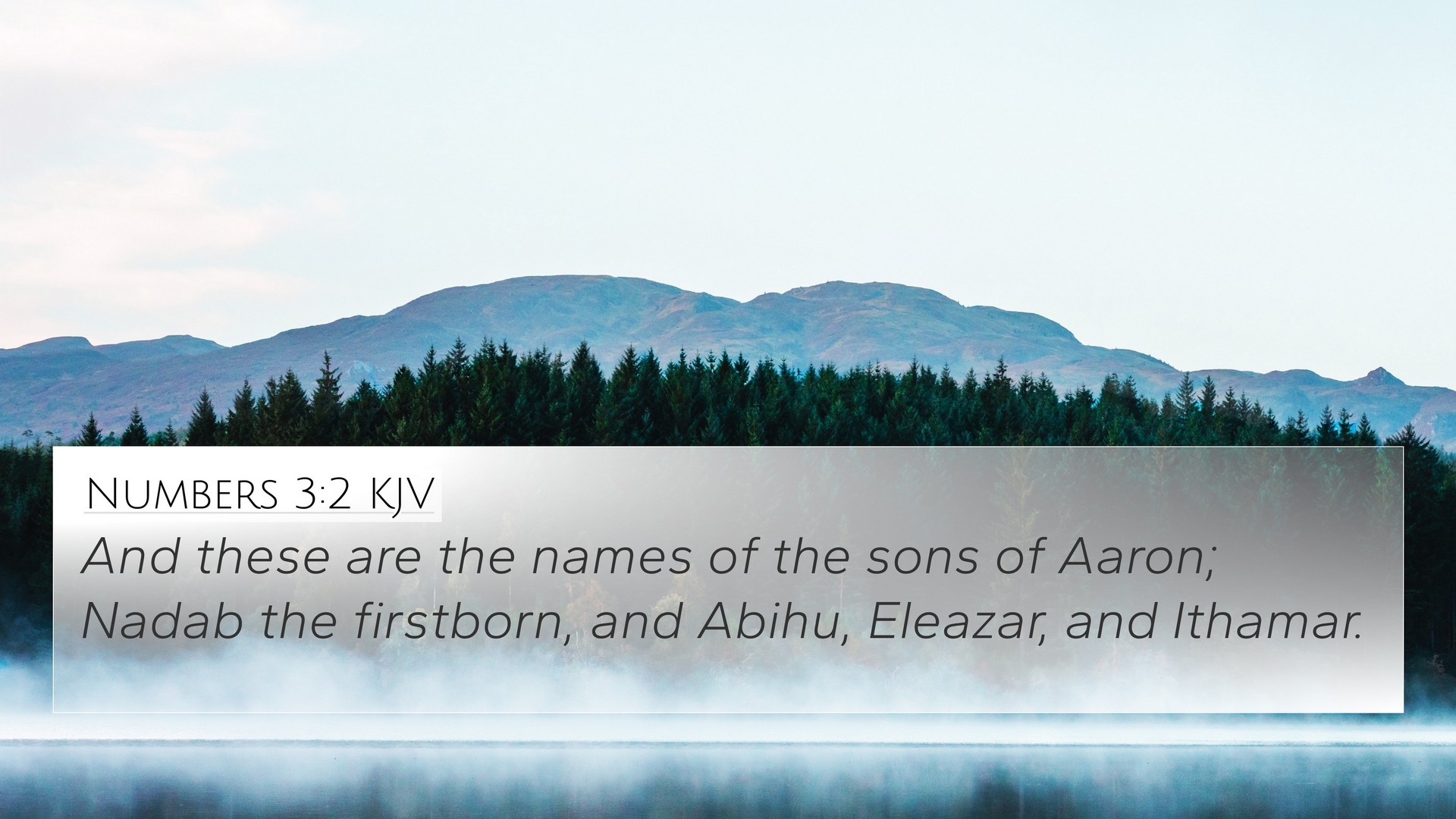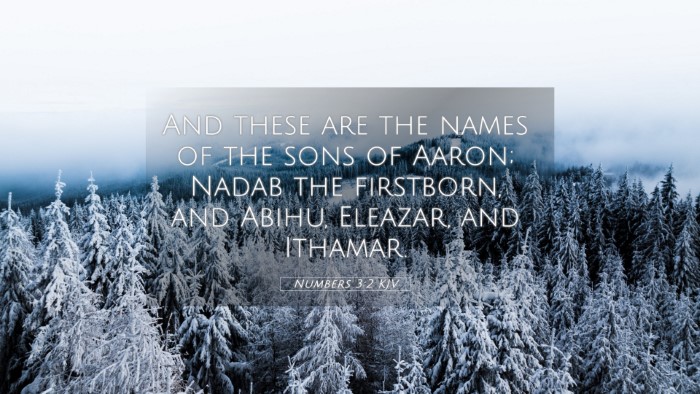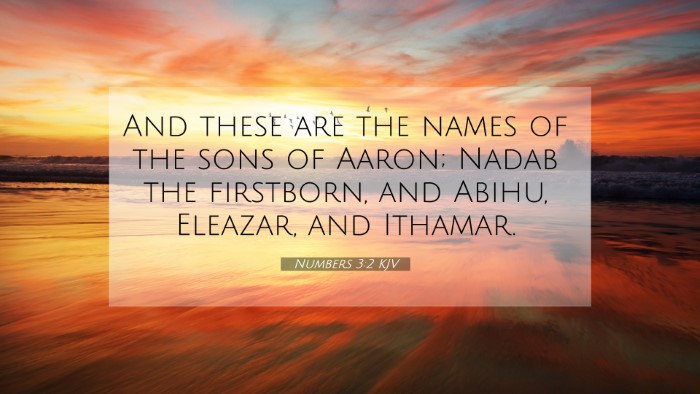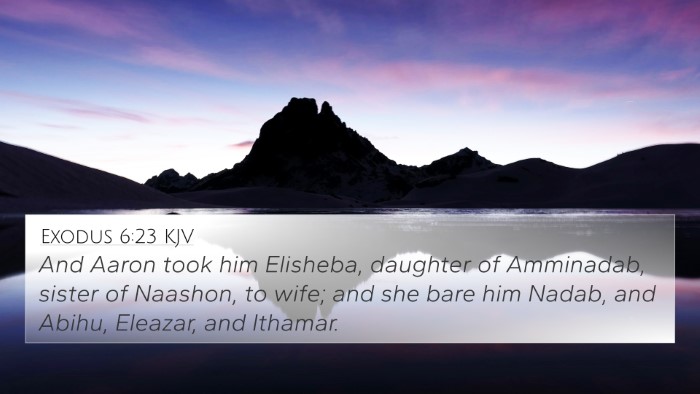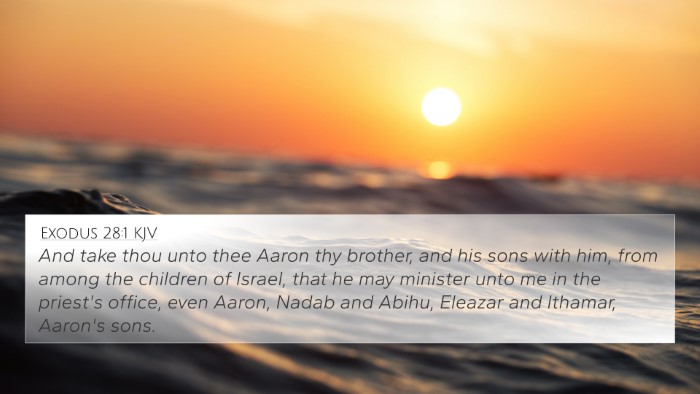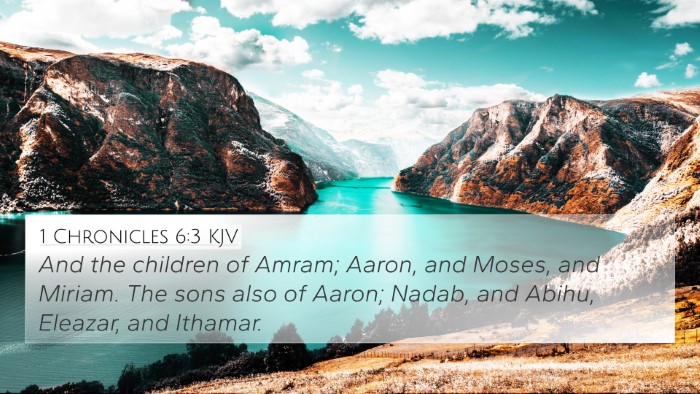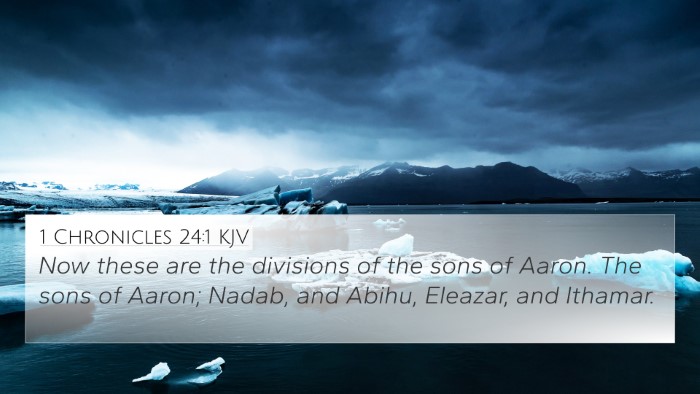Understanding Numbers 3:2
Numbers 3:2 states, "And these are the names of the sons of Aaron: Nadab the firstborn, and Abihu, Eleazar, and Ithamar." This verse introduces the sons of Aaron, the first high priest, emphasizing their role within the Levitical priesthood.
Contextual Overview
This verse falls within a passage that details the establishment of the priestly lineage and the responsibilities assigned to the family of Aaron. The children mentioned are central figures in the Exodus narrative and the priestly duties that follow.
Scholarly Insights
Matthew Henry on Numbers 3:2
Matthew Henry emphasizes the significance of Nadab, Abihu, Eleazar, and Ithamar in terms of their divinely ordained roles. He points out that their names are known for the legacy they carry forward within the sacrificial system and their responsibilities in the tabernacle.
Albert Barnes' Commentary
Albert Barnes highlights that this listing serves not only to identify Aaron's sons but also to stress the continuity of the priesthood through their lineage. He notes the contrasting fates of these priests — particularly the judgments upon Nadab and Abihu for their unfaithfulness in Levitical duties.
Adam Clarke's Analysis
Adam Clarke provides a detailed examination of the names and roles of each son. He explains how Nadab and Abihu’s actions and consequent punishment serve as a solemn warning against irreverence and disobedience in spiritual matters. Eleazar and Ithamar took on the continuing responsibilities to uphold the sacred order.
Key Themes and Messages
- Sacred Responsibility: The verse signifies the essential duties of the priests and their high calling to maintain holiness before God.
- Divine Selection: The naming of Aaron's sons indicates God's sovereign choice in appointing leaders for His people.
- Consequences of Disobedience: The fate of Nadab and Abihu serves as a contrast to the continuing faithful service expected of Eleazar and Ithamar.
- Priestly Heritage: The verse underscores the importance of generational continuity in fulfilling the covenant relationship established with God.
Cross-References and Thematic Connections
There are several Bible verses that relate to Numbers 3:2, showcasing the interconnection of scripture:
- Leviticus 10:1-3: Discusses the judgment of Nadab and Abihu for offering unauthorized fire.
- Exodus 28:1: Describes God's command for Aaron and his sons to serve as priests.
- 1 Chronicles 24:1-3: Outlines the division of priestly duties among Aaron’s descendants.
- Hebrews 7:11-14: Analyzes the priesthood of Jesus in relation to the Levitical priesthood.
- Numbers 18:1-7: Provides additional instructions regarding the responsibilities and privileges of the priests.
- Exodus 13:2: Highlights the sanctity of the firstborn, reflecting a theme of holiness and divine ownership.
- Malachi 2:4-7: Addresses the role of priests in preserving knowledge and teaching righteousness.
Conclusion
Numbers 3:2 serves not only as a historical record but also as a theological foundation for understanding the priestly role in the Israelite community, emphasizing themes of holiness, responsibility, and divine selection. The relationships and lessons derived from this verse encourage deep reflection on the nature of serving God and the implications of disobedience.
Further Reflection
For those studying this scripture, consider how the themes of Numbers 3:2 can be applied today. What does it mean to live a life dedicated to service and holiness? How can the lessons from Aaron's sons inform our understanding of faithfulness in our spiritual duties?
